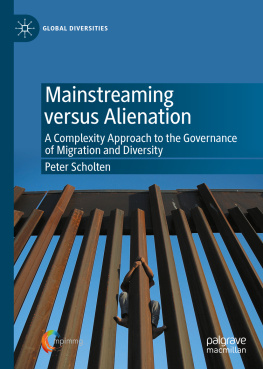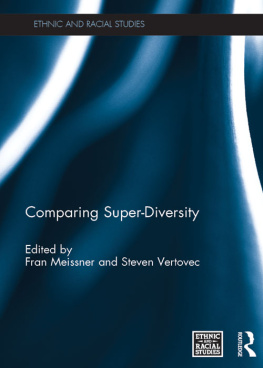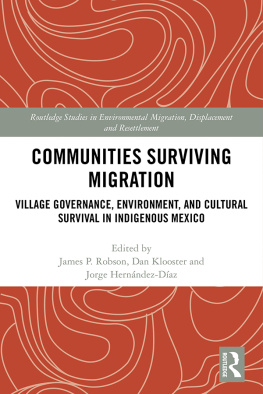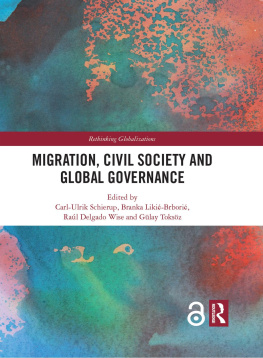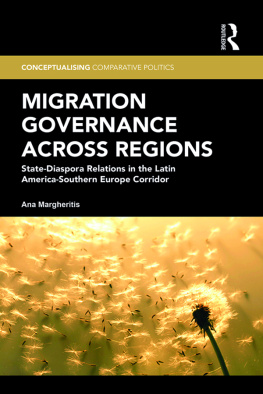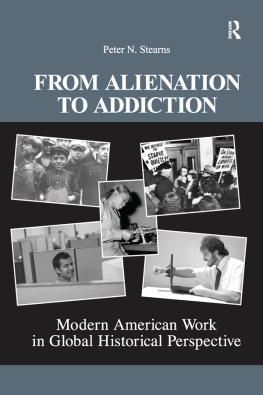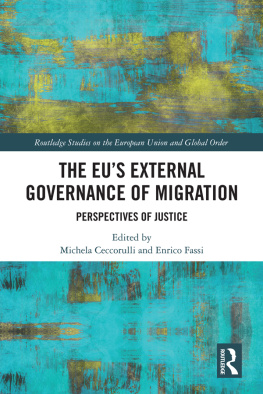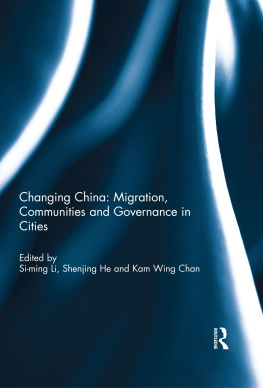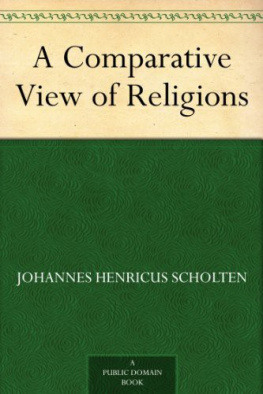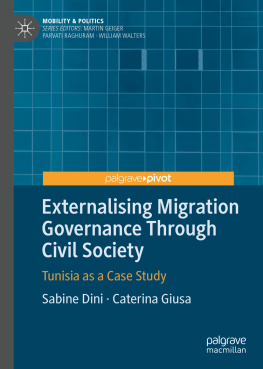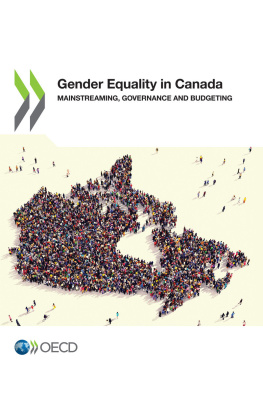Peter Scholten - Mainstreaming versus Alienation: A Complexity Approach to the Governance of Migration and Diversity
Here you can read online Peter Scholten - Mainstreaming versus Alienation: A Complexity Approach to the Governance of Migration and Diversity full text of the book (entire story) in english for free. Download pdf and epub, get meaning, cover and reviews about this ebook. year: 2020, publisher: Springer Nature, genre: Politics. Description of the work, (preface) as well as reviews are available. Best literature library LitArk.com created for fans of good reading and offers a wide selection of genres:
Romance novel
Science fiction
Adventure
Detective
Science
History
Home and family
Prose
Art
Politics
Computer
Non-fiction
Religion
Business
Children
Humor
Choose a favorite category and find really read worthwhile books. Enjoy immersion in the world of imagination, feel the emotions of the characters or learn something new for yourself, make an fascinating discovery.
- Book:Mainstreaming versus Alienation: A Complexity Approach to the Governance of Migration and Diversity
- Author:
- Publisher:Springer Nature
- Genre:
- Year:2020
- Rating:3 / 5
- Favourites:Add to favourites
- Your mark:
- 60
- 1
- 2
- 3
- 4
- 5
Mainstreaming versus Alienation: A Complexity Approach to the Governance of Migration and Diversity: summary, description and annotation
We offer to read an annotation, description, summary or preface (depends on what the author of the book "Mainstreaming versus Alienation: A Complexity Approach to the Governance of Migration and Diversity" wrote himself). If you haven't found the necessary information about the book — write in the comments, we will try to find it.
Peter Scholten: author's other books
Who wrote Mainstreaming versus Alienation: A Complexity Approach to the Governance of Migration and Diversity? Find out the surname, the name of the author of the book and a list of all author's works by series.
Mainstreaming versus Alienation: A Complexity Approach to the Governance of Migration and Diversity — read online for free the complete book (whole text) full work
Below is the text of the book, divided by pages. System saving the place of the last page read, allows you to conveniently read the book "Mainstreaming versus Alienation: A Complexity Approach to the Governance of Migration and Diversity" online for free, without having to search again every time where you left off. Put a bookmark, and you can go to the page where you finished reading at any time.
Font size:
Interval:
Bookmark:
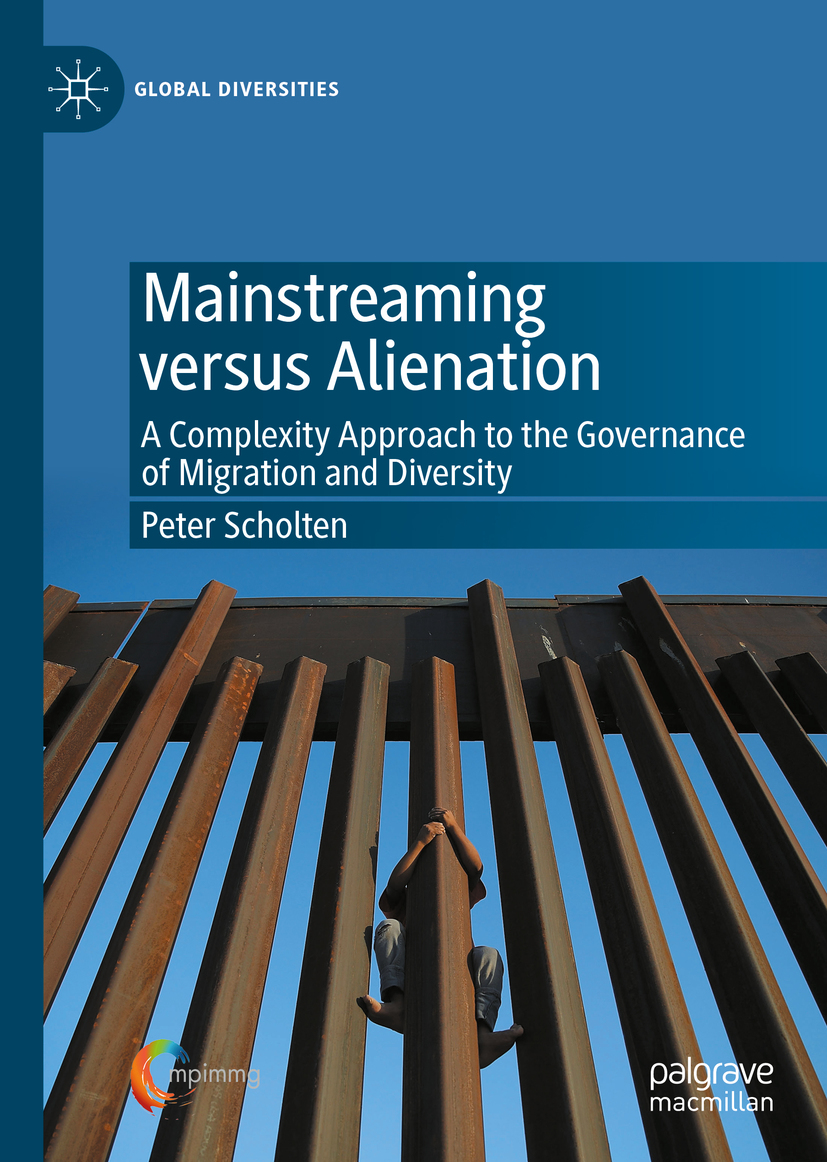
Over the past decade, the concept of 'diversity' has gained a leading place in academic thought, business practice, politics and public policy across the world. However, local conditions and meanings of 'diversity' are highly dissimilar and changing. For these reasons, deeper and more comparative understandings of pertinent concepts, processes and phenomena are in great demand. This series will examine multiple forms and configurations of diversity, how these have been conceived, imagined, and represented, how they have been or could be regulated or governed, how different processes of inter-ethnic or inter-religious encounter unfold, how conflicts arise and how political solutions are negotiated and practiced, and what truly convivial societies might actually look like. By comparatively examining a range of conditions, processes and cases revealing the contemporary meanings and dynamics of 'diversity', this series will be a key resource for students and professional social scientists. It will represent a landmark within a field that has become, and will continue to be, one of the foremost topics of global concern throughout the twenty-first century. Reflecting this multi-disciplinary field, the series will include works from Anthropology, Political Science, Sociology, Law, Geography and Religious Studies. While drawing on an international field of scholarship, the series will include works by current and former staff members, by visiting fellows and from events of the Max Planck Institute for the Study of Religious and Ethnic Diversity. Relevant manuscripts submitted from outside the Max Planck Institute network will also be considered.
More information about this series at http://www.palgrave.com/gp/series/15009

Cover illustration: Joe Raedle / Staff/ Getty Images
This Palgrave Macmillan imprint is published by the registered company Springer Nature Switzerland AG.
The registered company address is: Gewerbestrasse 11, 6330 Cham, Switzerland
At the source of this book is a profound curiosity and amazement as to how societies govern migration and migration-related diversity. This book brings together pretty much everything I have learned on what drives migration and diversity policymaking. At an early stage of my career I came to understand that rationality only goes part of the way towards explaining policymaking in these areas. I was increasingly drawn towards the study of these policy areas, intrigued by why much of the (rationalist) toolkit that I had learned as policy scientist did not help me to understand policymaking in these areas. For some reason I didnt come across many other policy scientists in these areas, although many were focusing on comparable wicked policy problems such as climate change, welfare state reform and (to a lesser degree) gender .
Since then it has become my mission to develop a better theoretical understanding of the dynamics of migration and diversity policymaking that will contribute to the policy sciences . The road towards this mission was paved with many complexities . My efforts to develop a firm grasp of migration studies literature has given me a thorough understanding of migration and diversity (such as social, historical, economic) phenomena. Based on this understanding I thought I was able to see when policies were right or wrong, or even good or bad. For instance, whether promoting immigrant integration was good or bad, whether integration measures worked or did not work, or whether recognizing environment -induced migration or climate refugees was right or wrong. However, this approach did not really help me to understand the logic of policymaking. It was informed by a rationalist view of policymaking as being driven by a serious conversation with the problem situation.
My work on reflexive research-policy dialogues (PhDthesis, DIAMINT project) provided initial insights into what was later to become the core framework for this book. Developing the notion of reflexivity as part of research-policy relations made it clear that reflexivity was hardly ever achieved. It seemed to me that there was something amiss with the quality of the policy process in the areas of migration and diversity. Reflexivity appeared as a counterfactual condition revealing what was missing.
In subsequent research projects I explored what could be driving policymaking, if it was not rationality or reflexivity . In one of my main contributions to policy science so far, I showed that the concept of multi-level governance assumed a far too well-structured and organized governance approach when compared to the chaotic and disorganized governance relations that I encountered. What I found was disjoined rather than multi-level governance , but once again I did not really understand why this was so. In the IMAGINATION project, my colleagues and I showed that the governance of intra-EU mobility was driven by decoupling between various policy actors and levels on a profound level of defining intra-EU mobility .
My colleagues and I arrived at similar observations in another project on Cities of Migration. This project showed that, in spite of all the theorizing and philosophizing on models of integration and migration governance, there was no one-size-fits-all. Migration and diversity took as many configurations as there were cities in our project, and policy responses differed even more significantly. Importantly, when theorizing that there was a systematic connection between types of diversity and modes of local governance, we observed only a slight correlation. Once more, I was struck by the complex nature of migration and diversity governance, while lacking the conceptual and theoretical tools to make sense of this complexity .
Font size:
Interval:
Bookmark:
Similar books «Mainstreaming versus Alienation: A Complexity Approach to the Governance of Migration and Diversity»
Look at similar books to Mainstreaming versus Alienation: A Complexity Approach to the Governance of Migration and Diversity. We have selected literature similar in name and meaning in the hope of providing readers with more options to find new, interesting, not yet read works.
Discussion, reviews of the book Mainstreaming versus Alienation: A Complexity Approach to the Governance of Migration and Diversity and just readers' own opinions. Leave your comments, write what you think about the work, its meaning or the main characters. Specify what exactly you liked and what you didn't like, and why you think so.

